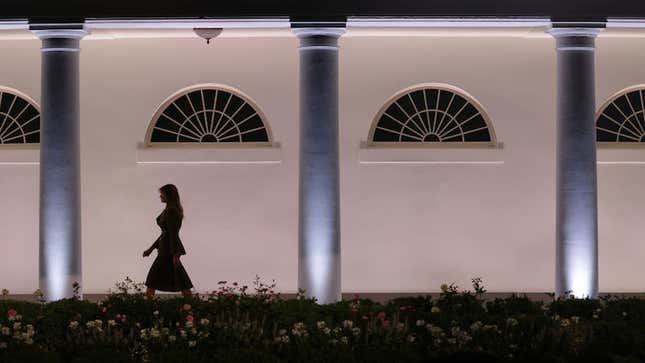Melania Trump's Skewed Empathy
Politics

Shortly after Melania Trump promised that her husband would “bring us back… to the greatest economy and the strongest country ever known” and exited the podium in the newly remodeled Rose Garden, the accolades began rolling in for what the media quickly labeled a transformative speech. CNN’s Wolf Blitzer and Jake Tapper applauded the empathy in her Tuesday night address at the Republican National Convention, particularly the sympathy she expressed for those affected by covid-19, embodied by “prayers … for those who are ill or suffering.” These remarks, according to an overly eager press corps, formed an expression that was in notable contrast to other convention speakers, who barely paused to notice the 178,000 dead Americans. The most basic utterances of human empathy became radically subversive speech, with Blitzer and Tapper hinting at one point that Melania Trump might be undermining the very man she had spent the last 20 minutes or so praising. The First Lady, as CNN later wrote, showed “touching compassion.”
Of course, Melania Trump did not undermine her husband nor his administration—she is always on his side and, last night, dressed in a military-inspired Alexander McQueen jacket, she looked like a footsoldier in the apocalypse-like wars convention speakers repeatedly described on Monday night. Despite the outfit, she utilized some of the most enduring fictions about her; namely, that she’s not like the rest of the Trumps. Melania, as Tapper and Blitzer reminded viewers, is different: She doesn’t yell about the corrupt media or snicker about triggering libs. On a night when Eric Trump directly addressed his father, saying he was “damned proud to be on the frontlines of this fight” with him, and Tiffany Trump relentlessly attacked the media, Melania simply acknowledged the existence of human life outside of the immediate Trump family. If Melania looked compassionate, then it was simply because the rest of her family are monstrous caricatures.
-

-

-

-

-

-

-

-

-

-

-

-

-

-

-

-

-

-

-

-

-

-

-

-

-

-

-

-

-

-

-

-

-

-

-

-

-

-

-

-








































